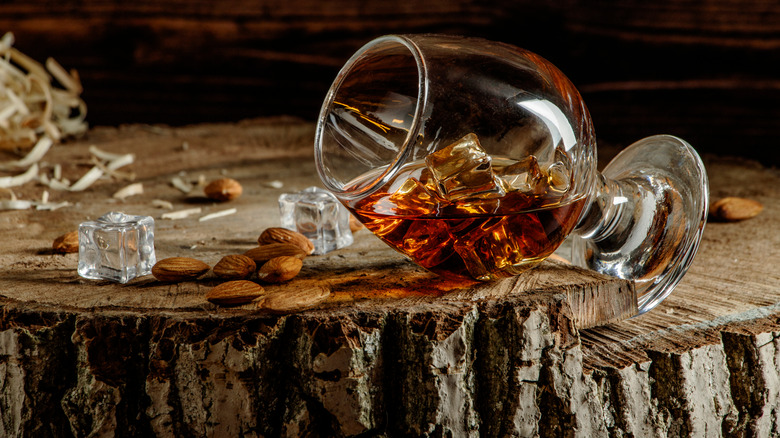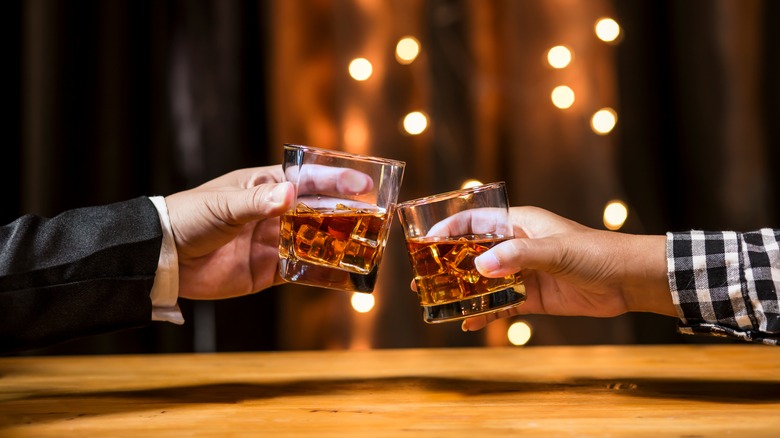The Mysterious Origins Of Whiskey
Whiskey is one of the most popular distilled spirits in the world. And how do you like your whiskey? There are many ways of serving the drink: neat, on the rocks, with a few drops of cold water, and in various classic and modern cocktails. How you drink your whiskey will influence the aromas and flavors, so choose carefully (via Whisky Flavour). And the most versatile way of serving whiskey is in classic mixed drinks.
You've probably already tried some of those, such as The Manhattan with dry vermouth and bitters, The classic Old Fashioned with bitters, or The Rusty Nail with Drambuie liqueur. And let's not forget about the decadent whisky sour, made with whiskey, egg whites, lemon juice, and sugar. We're already drooling, so give it a try (per Ape To Gentleman).
All these cocktails are fairly popular, but straight whiskey is also in demand. Statista reports that in December 2020, the total U.S. consumed about 3.66 million 9-liter cases of whiskey. Wow, that's certainly a milestone. But let's backtrack to the beginning and learn more about whiskey's slightly mysterious origins.
The origins of whiskey are disputed between Scotland and Ireland
You might've already seen two different spellings for this distilled spirit: sometimes it's spelled whisky, and sometimes whiskey, with an extra ”e.” The spelling already lets us know many things about the drink's origin. In Scotland, Japan, and Canada, the drink is spelled whisky, while in the U.S. and Ireland, it's whiskey (via Whisky Shop). However, these spellings only tell us where the whiskey has been distilled, but the addition or omission of the letter ”e” doesn't reveal where exactly was the first whiskey made.
And although we already know the location of the oldest whiskey distillery in the world, there's still an ongoing debate about the origin of whiskey between Ireland and Scotland. Both countries claim the spirit as their own, so it's up to you to choose which theory to believe. The Irish say that Irish monks brought back the distillation techniques from Arabia in 600 AD, while the Scots say that the "first recorded reference to whisky production in Scotland" dates back to Friar John Cor's tax records from 1494.
And there's another theory about the origins of whiskey that claims Vikings were actually its inventors (per VinePair). With all of these theories, it could be challenging to stick to just one, but in the end, all that matters is that the whiskey tastes excellent, regardless of its murky origins. For more inspiration, check out the 13 types of whiskey and what makes them unique.

